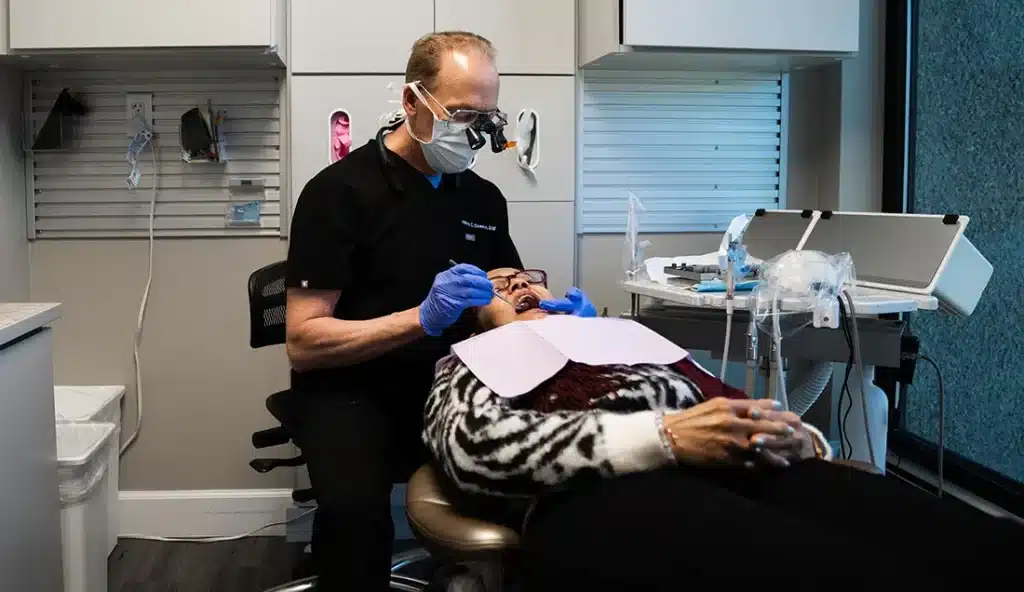Usual Concerns About Dental Veneers Addressed
Oral veneers have actually come to be a progressively popular option for those looking to improve their smiles, yet numerous people stay unsure regarding numerous elements of their use. As we explore these common queries, it comes to be essential to consider not only the advantages however also the implications of deciding for oral veneers in search of a much more confident appearance.
What Are Dental Veneers?
Oral veneers are thin, custom-made shells crafted from porcelain or composite material that are made to cover the front surface of teeth. These dental prosthetics serve both useful and aesthetic objectives, supplying a service for various oral flaws, consisting of staining, chips, gaps, and imbalance. By sticking to the teeth, veneers can dramatically boost the general appearance of a smile, developing an extra appealing and consistent look.
Porcelain veneers are especially preferred for their natural translucency and stain resistance, making them a suitable selection for people seeking long-lasting results. In comparison, composite material veneers are typically cheaper and can be used in a solitary see, however they may not supply the exact same toughness as porcelain options.
The decision to choose for dental veneers frequently comes from a wish for aesthetic renovation, yet patients should additionally think about variables such as the long life of the product, upkeep demands, and the potential demand for tooth reduction (Low Cost Veneers). Ultimately, dental veneers stand for a effective and functional solution for achieving a glowing smile, accommodating individual aesthetic demands while advertising self-confidence and self-worth
Exactly How Are Veneers Applied?
The application procedure for veneers requires careful planning and precision to make certain ideal results. The procedure commonly begins with a thorough appointment, where the dental practitioner examines the person's dental wellness, discusses desired outcomes, and identifies the suitable sort of veneers, whether porcelain or composite material.
Once the therapy plan is developed, the dental practitioner prepares the teeth by removing a thin layer of enamel, generally about 0.5 mm to 1 mm, to suit the veneer. This step is critical as it makes certain a proper fit and stops the veneers from appearing bulky - Dental Veneers. After preparation, perceptions of the teeth are taken to create custom veneers that match the person's special dental framework and visual preferences
While the long-term veneers are being fabricated in an oral lab, short-term veneers might be placed to shield the ready teeth. Once the irreversible veneers are ready, the dental practitioner will thoroughly bond them to the teeth making use of a strong oral adhesive. Last adjustments are made to make sure correct positioning and bite, followed by brightening for an all-natural look. The procedure finishes in a follow-up visit to check the veneers' fit and the client's complete satisfaction with their brand-new smile.
What Are the Advantages?

Additionally, veneers are recognized for their longevity and resistance to discoloring compared to natural teeth. Made from high-quality materials such as porcelain or composite material, they can maintain their appearance for many years with correct care. This durability makes them a useful financial investment in one's oral look.
In enhancement to aesthetic enhancements, veneers can additionally add to enhanced oral health. By covering damaged or deteriorated teeth, they can offer additional support and protection, assisting to avoid further decay or wear and tear. This safety facet can minimize the need for more comprehensive dental treatments in the future.

Exactly How Long Do They Last?
With appropriate treatment and upkeep, dental veneers can last anywhere from 10 to 15 years, making them a lasting service for boosting one's smile. The long life of veneers largely depends upon the product utilized, the quality of the initial placement, and the individual's adherence to dental hygiene practices.
Porcelain veneers are known for their sturdiness and resistance to staining, commonly lasting closer to the 15-year mark when looked after appropriately. Compound veneers, while more budget friendly, may require replacement faster, frequently within 5 to ten years because of their sensitivity to put on and staining.

Additionally, wearing a mouthguard during sporting activities or nighttime can offer extra security. Ultimately, while veneers supply a substantial aesthetic enhancement, their long life is considerably affected by the dedication to correct dental care and routine consultations with an oral specialist.
Are There Any Dangers?
Thinking about the transformative impacts of dental veneers, it's crucial to recognize the possible threats connected with their application. While veneers can improve the look of official website teeth, the treatment involves the removal of a thin layer of enamel, which can increase tooth sensitivity and vulnerability to degeneration.
One significant risk is the possibility of improper placement or fitting, leading to discomfort, bite misalignment, and even damages to the underlying tooth structure. Furthermore, if the veneers are not preserved correctly, they can end up being tarnished or chipped over time, necessitating substitute.
People might additionally experience allergies to the products made use of in the veneers, especially if they have sensitivities to certain dental compounds. While veneers are resilient, they are not undestroyable; extreme force from grinding or squeezing can lead to fractures.
It is vital for patients to speak with a certified dental professional to review their private risks and to adhere to aftercare directions diligently. By understanding these threats, clients can make informed choices regarding their oral veneer therapy and ensure the long life and success of their enhancements.
Verdict
In recap, dental veneers stand for a valuable cosmetic remedy for enhancing smiles, with considerations concerning their application, benefits, durability, and associated dangers. Their effectiveness is influenced by factors such as the option of product, with porcelain offering exceptional resilience contrasted to composite options. Appropriate treatment and maintenance are necessary to optimize the lifespan of veneers. Eventually, educated decision-making concerning oral veneers can lead to satisfying visual outcomes and enhanced oral wellness.
Oral veneers are slim, custom-made shells crafted from porcelain or composite resin that are try this web-site created to cover the front surface area of teeth. After prep work, impacts of the teeth are taken to develop custom veneers that match the patient's distinct dental structure and visual choices.
While the permanent veneers are being produced in an oral lab, short-lived veneers might be positioned to protect the prepared teeth. When the long-term veneers are prepared, the dental practitioner will meticulously bond them to the teeth making use of a solid oral adhesive. Eventually, educated decision-making concerning dental veneers can lead to acceptable aesthetic outcomes and boosted oral health and wellness.